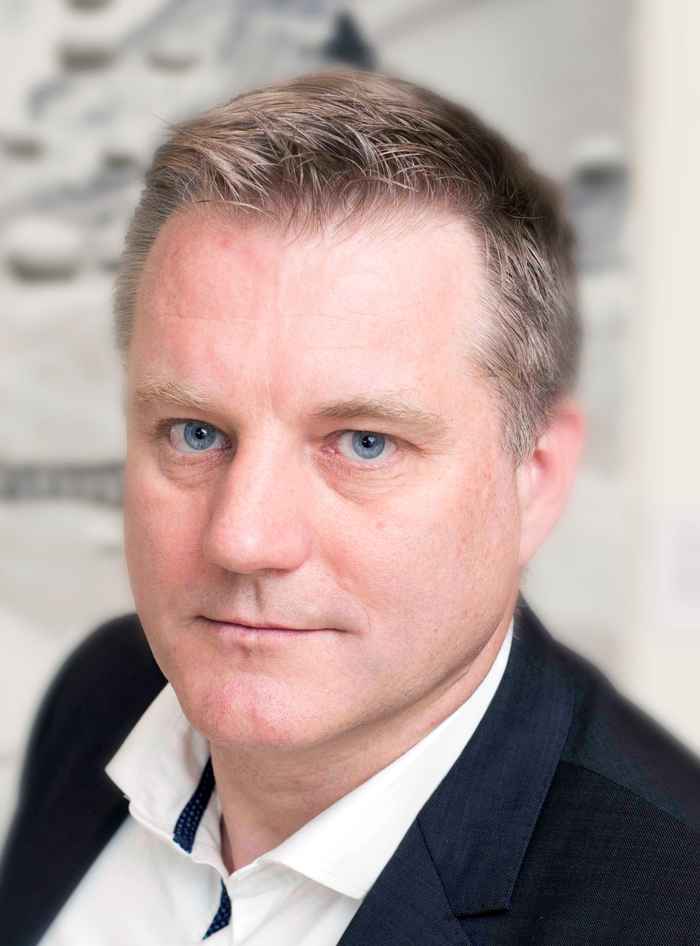Achieving more together
13 October 2024
One organisation cannot solve a complex problem, such as high healthcare costs or a shortage of affordable housing. That requires a lot of parties, each with their own data. Bringing that data together can provide many useful insights to, for instance, make healthcare processes more efficient, improve mobility in cities or reduce energy network overload. However, parties cannot easily share that data. As a result, the information remains in silos, making it harder to realise the most optimal outcome. This is in short the problem for which Sander Klous, professor of AI & Audit at the University of Amsterdam and a partner at KPMG, is currently looking for a solution.

Klous , group leader of the Complex Cyber Infrastructure (CCI) group of the Informatics Institute, cites an example from healthcare. ‘If you are hospitalised with a brain infarct, for example, you might be there for a few weeks. Then you go to the next organisation, for example for rehabilitation or home care. As a patient, you thus go through a whole chain of organisations. Right now, the hospital optimises treatment on the basis of the data it has itself - and so only for a few weeks. Whereas rehabilitation and home care can take years. So it could well be that if you adjust treatment in those few weeks in hospital, you could then shorten the follow-up process. We want to be able to track the entire patient journey to gain insight into that.’ This requires data analysis from all parties, in a shared data space. Because such an optimisation process could potentially lead to higher costs for the hospital, the health insurer, for instance, should also be involved in this process, so that those costs can be compensated. ‘You then recoup those elsewhere. Because, of course, the ultimate goal is for patients to have a shorter recovery time.’
Federative system
This example is based on a research project called Enabling Personalised Interventions, which Klous and colleagues from the UvA, VU and CWI carried out in collaboration with the UMC Utrecht, the Sint Antonius Hospital and the Prinses Maxima Centre, among others. This project falls under a larger umbrella, namely AMdEX, which could be described as an initiative that allows data to be exchanged in an open and responsible way. A digital notary as it were, which allows agreements on data exchange to be drawn up and monitored. The aim of AMdEX is to make data spaces interoperable, or in other words not dependent on a single supplier. Klous calls this a federated system. ‘In this system, each party has its own responsibility. There are mechanisms built in to check that everyone is complying, and you can impose sanctions if they are not.’ Achieving such an infrastructure requires agreements on standards and protocols for information exchange, similar to the internet or the worldwide web.
As in healthcare and area development, many different parties are involved there, all with their own interests. Federated data spaces can play an important role in this kind of analysis because the parties involved can work together without having to give up their autonomy or sovereignty.Sander Klous, group leader CCI group
Emulator
This infrastructure can help not only in healthcare. Many organisations dealing with a lot of data can benefit from it. ‘For example, we are also preparing a project with the Municipality of Amsterdam, for area development around the Johan Cruijff Arena. All kinds of interests must be weighed against each other. Waste streams need to be processed, there has to be enough energy and water, there has to be employment. We want to make a socio-economic emulator of all kinds of data sources, think mobility data, health data, labour participation and energy consumption, so that we can support policymakers to optimise the quality of life in the area.’ And AMdEX's infrastructure is also applicable in the energy transition. ‘As in healthcare and area development, many different parties are involved there, all with their own interests. Federated data spaces can play an important role in this kind of analysis because the parties involved can work together without having to give up their autonomy or sovereignty.’
Close to society
Klous, who has now been working at the UvA for more than ten years, prefers to look for research projects that are close to society, he says. He worked for 17 years as a physicist on projects at particle accelerator CERN, before moving to accountancy and consultancy organisation KPMG. ‘Because of the short lead times of projects in business, that was not a happy match at first, but fortunately I got the chance to combine my job with a professorship at the Complex Cyber Infrastructure (CCI) group at the UvA. This way, I can be involved in long-term developments with my research at UvA and directly influence what is happening in society through KPMG.’
Far from being completed, AMdEX still raises all kinds of scientific follow-up questions, such as: who is going to check that all parties comply with the agreements? ‘Soon, organisations will have to stand up and take on that role. At KPMG, we are already thinking about that.’